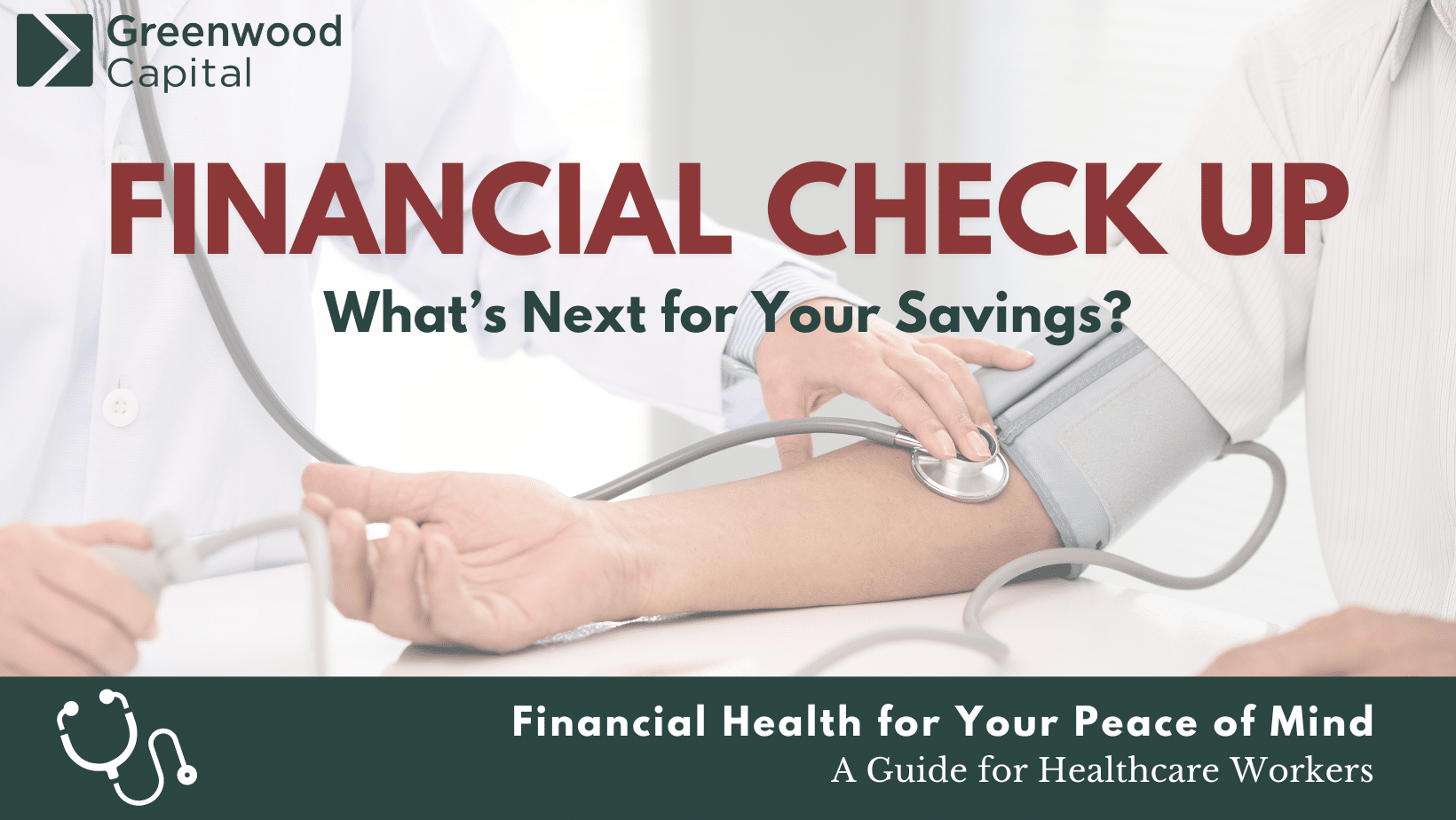Financial Health for Your Peace of Mind
As a healthcare worker, you are used to solving problems and focusing on details. After all, in your career, the stakes can often be life or death.
But it can be more difficult to navigate the maze of personal finance. In this series, we dive into the specific financial issues facing medical professionals at every career stage. We will provide straightforward answers to the economic concerns faced by doctors, nurses, administrators, and other healthcare workers.
As you settle into your healthcare career, you are already balancing the demands of long hours, continuous education, and the complexities of the healthcare system. In your off hours, you may be juggling making time for your partner, attending your kid’s school event, or helping aging parents.
Financial planning can take a backseat, especially when things seem to be going well! Many mid-career healthcare workers are earning higher salaries while experiencing a debt transition from student loans and car payments to mortgages and other “good” debt.
However, as you progress in your career, it is important to continue monitoring and improving your financial health. We talked earlier about how important it is to start saving as you start earning income.
The next step is to expand into other important savings categories such as ROTH retirement accounts, college savings, and HSAs for medical expenses.
ROTH IRA
If you have already built up an emergency fund and are contributing to your employer’s retirement plan, consider making additional retirement contributions to a ROTH IRA. You can contribute excess post-tax income to a maximum of $6,500 a year. If you are over age 50, that limit is $7,500. (These limits are as of 7/25/2024. For the most recent numbers, check the IRS website.)
ROTH IRAs are more than just another retirement savings account. They give you access to tax-free income in retirement. This can be an important part of your disbursement strategy, allowing you to diversify with both taxable and non-taxable income.
COLLEGE SAVINGS
As your own college debt fades in the rearview mirror, you may be considering setting up college savings plans for the next generation. If you have children, nieces, nephews, or grandchildren who may be planning to attend university, now is the time to look at funding a 529 or similar account.
529 Plans
States offer 529 plans as a savings vehicle governed by the federal government. There are two types of plans: the first is an investment account that allows contributions to grow tax deferred. When used to pay qualified educational expenses, those earnings are tax-free at the federal level. However, withdrawals face penalties if not used for education costs. The second type of 529 plan is a pre-paid tuition plan, that allows you to purchase tuition for future study at today’s prices.
Remember, put on your own mask before helping others.
Be sure you are fully funding your retirement before setting aside money for others. Students can take out federal student loans, but retirees do not have that same option.
ROTH IRA
ROTH IRAs are another option for college savings. ROTH IRAs are more flexible, provided they have been open for at least 5 years. A ROTH IRA allows you to invest funds that can be used for a variety of qualified expenses including education expenses. If your child or loved one is not sure about college, they can also use the savings in a ROTH IRA for emergency medical expenses or to purchase their first home.
Before opening any college savings account, be sure you understand the risks, fees, and tax implications of the plan. Your financial advisor can help you evaluate these factors and choose a plan that works for your family.
HEALTH SAVINGS ACCOUNTS
HSAs (Health Savings Accounts) are heavy hitters if you are looking to boost your savings while minimizing your tax burden. These accounts are triple-tax advantaged and are generally available for people who have a high-deductible healthcare plan. You own your HSA and funds will carry over year over year. There is currently an annual contribution limit of $3,850 for an individual plan and $7,750 for family coverage. (As of 7/25/2024)
But what does triple tax-advantaged mean? Contributions are made with pre-tax income and are both tax-free and tax-deductible. In addition, distributions made to qualifying medical expenses are not subject to tax.
That means you never pay taxes on income that is put into an HSA and you can write those contributions off of your taxes, even if you don’t itemize your other deductions! In addition, when you make withdrawals to pay for medical bills and healthcare costs, those earnings and distributions are tax-free. (Source)
Contributing to an HSA can be a great buffer for your family in case of medical emergencies. It can also be an effective strategy to boost retirement savings since healthcare costs are a major factor to consider in retirement.
Your financial advisor can help you determine if you are eligible for an HSA plan and can ensure that your contributions to any health savings plan align with your needs and savings goals.
For mid-career healthcare workers, getting in the habit of saving is only the first step. In our next article, we’ll cover how to allocate those savings accounts and practice healthy investing.
We are here to help, whether by answering a quick question or building an in-depth personalized financial plan.

John W. Cooper, CFP®
Senior Private Client Advisor
During his first decade in the workforce, John worked at Self Regional Hospital (then Self Memorial) in materials management. His previous experience at the hospital provided him with a unique insight into the financial challenges that healthcare workers face.
Even after pivoting to a career as a financial advisor, John has remained dedicated to supporting nurses, doctors, and administrators. Instead of ordering new operating room equipment, he now provides customized, informed financial plans for his former colleagues.
Further Reading
Swallowing the Pill: How to Handle Student Loan Debt
This article tackles how to approach your student loans and lays out the options you may have for repayment or forgiveness.
All About Your 403(b): Traditional vs. ROTH
Learn more about your 403(b) plan, including the differences between a traditional and ROTH account.
Start with Strategy: Retirement Savings Part 1
What strategies should you be implementing as you start saving for retirement?
Want to receive financial guidance in your inbox?
Excerpts from or links to this article on the Greenwood Capital Insights page have been included in Greenwood Capital social media pages and distributed Greenwood Capital newsletter. As is the nature of social media, the general public is able to post comments and/or “likes” in response to these excerpts and/or links. These comments are unsolicited and are posted by either clients or non-clients, which could be interpreted as client testimonials or public endorsements, respectively, and no cash or non-cash compensation is provided. A conflict of interest could exist related to unsolicited posts as Greenwood Capital and its investment adviser representatives could indirectly benefit from these posts.












